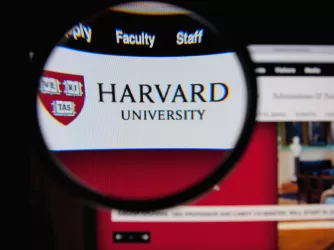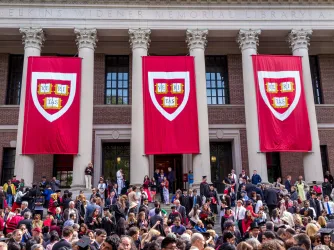Table of Contents
DePaul Continues to Rail Against Viewpoint Diversity, Bans Ben Shapiro

In an article for The Daily Wire, the vice chairman for DePaul University’s chapter of Young Americans for Freedom, John Minster, revealed that DePaul’s administrators are once again acting as censors, banning another speaker from campus. This time, the school is forcing his group to disinvite conservative commentator Ben Shapiro from speaking on campus.
In an email to the group’s executive board, DePaul Vice President of Facilities Operations Bob Janis stated security concerns were the reason for not allowing the editor-in-chief of The Daily Wire to speak at the university. Shapiro addressed these concerns last night on The Kelly File, saying:
What I love most about this situation is that they don’t even say that what I’m saying is so terrible. Instead, what they say is that because I’ve been met with violence at other campuses, this raises security concerns. So in other words, they can’t keep their own students from assaulting people . . . basically, we now have the rioters’ veto.
This marks the second time in under thirty days that DePaul has denied a request for space to host a conservative speaker on campus due to potential security concerns posed by protesters. In early July, the DePaul College Republicans had their request for an event with controversial Breitbart contributor Milo Yiannopoulos denied. This denial came despite statements by the university’s president, Rev. Dennis Holtschneider, condemning the “heckler’s veto” that arose during Yiannopoulos’ previous visit to campus in May. The day after that incident, Holtschneider published an open letter to the university community, stating:
Yesterday’s speaker was invited to speak at DePaul, and those who interrupted the speech were wrong to do so. Universities welcome speakers, give their ideas a respectful hearing, and then respond with additional speech countering the ideas. I was ashamed for DePaul University when I saw a student rip the microphone from the hands of the conference moderator and wave it in the face of our speaker.
It should be noted that Holtschneider soon after submitted his resignation, effective in the summer of 2017. Regardless, Yiannopoulos’ disinvitation marks a continued disjunct between DePaul’s expressed commitments to free speech values and its actual practices.
While DePaul University is a private university, it advertises a strong commitment to free speech to current and potential students. DePaul must hold itself to those promises. In its Student Code of Responsibility, DePaul makes explicit commitments to free speech principles:
Students have the right to their own ideas, beliefs and political associations. Students have the right to ask questions and express their opinions without affecting their academic evaluations, as long as such do not interfere with the normal operations of their classes or infringe on the rights of other students in their classes. Instructors shall evaluate students’ performances without prejudice.
After Yiannopoulos was banned from campus, Vice President of Student Affairs Gene Zdziarski sent mixed messages to the media, saying, “DePaul will continue to work with student organizations to sponsor events and speakers representing a broad range of opinions on the issues of the day.” The denial of facilities for Shapiro’s speech proves this laudable commitment is an empty promise.
In the wake of Shapiro’s disinvitation, Young America’s Foundation issued a statement condemning DePaul for the dissonance between their words and actions. The statement demands that:
If DePaul does not reverse its decision to ban Ben, it must immediately remove any claim to support free speech and expression from its website and marketing materials or become a fraudulent laughingstock.
DePaul has had a long history of hostility towards free speech, including discriminating against a drug policy reform group, shutting down an affirmative action protest, suspending a professor for his expression without a hearing, and forbidding a student group from protesting Professor Ward Churchill’s visit to campus. In 2013, DePaul “earned” a spot on FIRE’s annual 10 Worst Colleges for Free Speech list when it punished a student for revealing the names of those who vandalized his student group’s campus display.
FIRE will continue to monitor the situation at DePaul and will update Torch readers as new information arises. To learn more about trends in campus disinvitations, visit FIRE’s Disinvitation Database.
Recent Articles
FIRE’s award-winning Newsdesk covers the free speech news you need to stay informed.

Revoking Harvard’s tax-exempt status will threaten all nonprofits

Grandpa’s advice for the new wave of American censors

FIRE POLL: Only 1/4 of Americans support deporting foreigners for pro-Palestinian views
